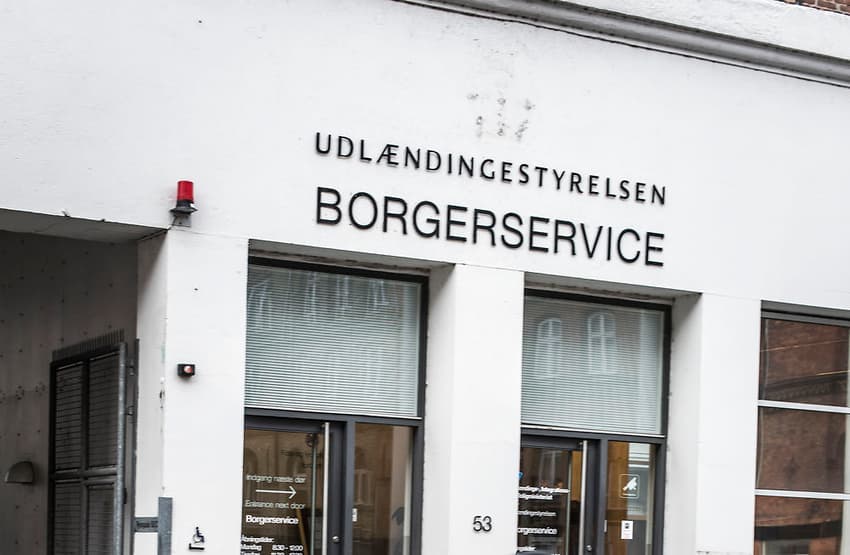New Danish rules announced for family reunification of children

Denmark’s Ministry of Immigration and Integration has announced new rules regarding the family reunification of children, after controversial cases in which children were deported caused public outcry.
Foreign residents of Denmark who want their children to move to the country to live with them must apply for this as soon as possible and no later than three months after being granted residency, the ministry announced.
Meanwhile, an existing demand for good “long-term integration prospects” for children applying for family reunification will be scrapped.
The government has agreed with the Danish People’s Party and Social Democrats over the proposed rule change and will now formulate a bill, according to a ministry press statement.
Rules on the area have seen heavy debate in recent months, particularly in relation to a case involving 13-year-old Atcharapan "Mint" Yaungyai, who in October last year left Denmark, where she lived with her mother and Danish stepfather and stepbrother.
Mint, who moved to Denmark in 2017 and attended school at seventh grade, the normal level for her age, was refused permission to remain in the country due to not fulfilling Immigration Board (Udlændingenævnet) requirements over integration. She was deported to Thailand, where she was accompanied by her mother.
The reason given by authorities for her deportation was that she was considered have lived in Thailand for too long to become integrated in Denmark. Several politicians spoke publicly to criticise the outcome of her case.
The Local Denmark is introducing Membership: You can join today

The aim of the new rule is to stress the importance of early application, according to the ministry press statement.
“If a parent wishes to live and reside in Denmark with their child, they must bring their child here immediately,” immigration minister Inger Støjberg said in the statement.
“Children should not just be left in home countries for several years,” Støjberg also said, adding that this constituted a risk that “the child could, for example, end up at Quran school”.
No elaboration was given in the statement as to why Islamic schools were cited, but Støjberg has previously backed assessment of children’s ability to adapt to Danish society.
Such a measure can prevent parents choosing to leave them in home countries for years with the aim of preventing them from becoming 'too Danish', according to the minister.
Current rules in the area have resulted in a number of cases such as that of Mint, who attended state school in Denmark and speaks fluent Danish.
The new rules will apply to cases in which one parent lives in Denmark while the other remains in the home country or a third country.
The rule change will not affect Mint’s case and will only apply to future cases, Støjberg has previously confirmed.
READ ALSO:
Comments
See Also
Foreign residents of Denmark who want their children to move to the country to live with them must apply for this as soon as possible and no later than three months after being granted residency, the ministry announced.
Meanwhile, an existing demand for good “long-term integration prospects” for children applying for family reunification will be scrapped.
The government has agreed with the Danish People’s Party and Social Democrats over the proposed rule change and will now formulate a bill, according to a ministry press statement.
Rules on the area have seen heavy debate in recent months, particularly in relation to a case involving 13-year-old Atcharapan "Mint" Yaungyai, who in October last year left Denmark, where she lived with her mother and Danish stepfather and stepbrother.
Mint, who moved to Denmark in 2017 and attended school at seventh grade, the normal level for her age, was refused permission to remain in the country due to not fulfilling Immigration Board (Udlændingenævnet) requirements over integration. She was deported to Thailand, where she was accompanied by her mother.
The reason given by authorities for her deportation was that she was considered have lived in Thailand for too long to become integrated in Denmark. Several politicians spoke publicly to criticise the outcome of her case.
The Local Denmark is introducing Membership: You can join today

The aim of the new rule is to stress the importance of early application, according to the ministry press statement.
“If a parent wishes to live and reside in Denmark with their child, they must bring their child here immediately,” immigration minister Inger Støjberg said in the statement.
“Children should not just be left in home countries for several years,” Støjberg also said, adding that this constituted a risk that “the child could, for example, end up at Quran school”.
No elaboration was given in the statement as to why Islamic schools were cited, but Støjberg has previously backed assessment of children’s ability to adapt to Danish society.
Such a measure can prevent parents choosing to leave them in home countries for years with the aim of preventing them from becoming 'too Danish', according to the minister.
Current rules in the area have resulted in a number of cases such as that of Mint, who attended state school in Denmark and speaks fluent Danish.
The new rules will apply to cases in which one parent lives in Denmark while the other remains in the home country or a third country.
The rule change will not affect Mint’s case and will only apply to future cases, Støjberg has previously confirmed.
READ ALSO:
Join the conversation in our comments section below. Share your own views and experience and if you have a question or suggestion for our journalists then email us at [email protected].
Please keep comments civil, constructive and on topic – and make sure to read our terms of use before getting involved.
Please log in here to leave a comment.